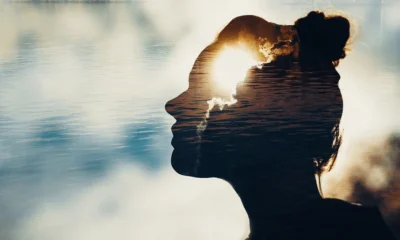Dr Niraj Singh, a consultant psychiatrist and prescriber at The Medical Cannabis Clinics discusses the important role that THC can play in treating mental illness.
As a consultant psychiatrist in the NHS, Dr Niraj Singh treats patients with serious mental health conditions, from anxiety and depression to bipolar disorder and schizophrenia. After exploring alternative treatments for his patients, around two years ago he began prescribing medical cannabis through The Medical Cannabis Clinics. Despite the stigma around THC, he describes the outcomes of his patients as a “revelation”.
How did you become aware of medical cannabis and its potential as a treatment?
Dr Niraj Singh: I was searching for alternative ways to support patients and thinking about what I could do differently. This is veering off track from what I’ve been trained to do as a doctor and I think that’s something that hopefully will be rectified in the future. We know our health can benefit from lots of different things, especially from what’s in our natural environment.
Medical cannabis offers a viable opportunity for people to regulate the symptoms of their conditions and improve and this needs to be part of the holistic strategy. It’s important that the treatment is there, but that’s just one arm of healthcare. We need to be thinking about the effects of diet, exercise, good sleep patterns, recreational hobbies and work. I hope that in the future there is much more emphasis on that in medical training.

Why is this holistic view of healthcare important?
Dr Singh: Traditional medicine is very much about treating the symptom, but one of the great things about medical cannabis is that it can treat a myriad of things at the same time. It’s not uncommon for patients to come back to me and say ‘I’ve had this pain in my legs, and that’s gone as well and actually, I didn’t realise how much that was really hampering things and causing me more anxiety.’
The mind and body aren’t separate, although the system we have at the moment almost suggests that. Mental health impacts physical health and physical health problems also impact one’s mental health. It’s useful to have something that is not just focused on the symptom but actually getting to the foundation of the problem.
Can you explain how THC can be a useful mechanism for treating certain mental health conditions?
Within our brain, we have various receptors, but one of the most important ones is the CB1 receptor, and this is what THC binds to. CB1 receptors are really important for the regulation of anxiety and for sleep, which is one of the reasons we observe real improvements in patients with symptomatic relief in various conditions.
It has been shown that people with PTSD, for example, have a higher number of CB1 receptors, because they’ve got lower circulating levels of anandamide in their blood. As a result, the brain has to compensate and it expands the number of CB1 receptors, which THC binds to, hence treatment can be really beneficial.
In ADHD the brain is deficient in a neurotransmitter called dopamine, which is important for focus, concentration and attention. By binding onto the CB1 receptor THC promotes the dopaminergic systems to produce more dopamine, improving symptoms.
THC is also really important for sleep, as it reduces what’s called REM sleep. Within REM sleep, we have intense dreams, so people with PTSD will often have nightmares, intrusive thoughts and flashbacks. THC also reduces what’s called sleep latency so the ability to get to sleep more readily improves.
Is THC helpful or harmful for anxiety?
There’s an assumption that THC is going to cause more problems and yes, in excessive amounts that can happen, but it can also be really beneficial.
Every patient has what’s called a subjective therapeutic dose, depending on their receptor profile. We always start at a lower dose and gradually build up. If we go beyond a certain dose, it can promote anxiety, but if we hit that range it can reduce anxiety levels and panic symptoms.
It does this by balancing the neurotransmitters. In the brain, we have excitatory neurotransmitters – which might result in symptoms of panic – and inhibitory neurotransmitters which promote relaxation, and getting those in balance is absolutely crucial.

What are the most common myths you’ve come across surrounding medical cannabis and mental health or in particular THC and mental health?
Dr Singh: One of the main myths is that people will become addicted and dependent on it. Street cannabis containing high levels of THC has caused problems in the past for people, that’s very true – and there is some evidence to suggest that it can increase the risk of psychosis – but when you look at the evidence, dependency is far lower compared to say alcohol, cocaine or smoking. Even recreationally, cannabis has around a nine per cent dependency rate compared to alcohol and cocaine (20 per cent) and tobacco (60 per cent).
There needs to be more balance in the narrative, certainly in medical training. We need to keep informing colleagues that this is a medicine and can be life-changing for individuals with serious chronic mental and physical problems.
How do you deal with stigma amongst colleagues when they learn that you prescribe medical cannabis?
Dr Singh: I always have a spectrum of responses from colleagues when I start to mention this from the downright ‘what on earth you’re talking about, are you okay?’, to more of a curiosity, and a bit more interest in wanting to see more. Colleagues already have a series of barriers that they’ve been conditioned with and we need to tackle those. That comes with building the evidence base and sharing case studies, as well as the patient voice, which is extremely powerful. We need really strong advocates who can communicate the benefits that this medicine has.
I have had some challenges to the point of things being taken to a higher level because of concerns, but ultimately for me, I believe in it and it’s about the patients benefiting from this.
How should a patient go about talking to their NHS consultants and convincing them that they can be on a cannabis-based product and start counselling or take it alongside other medications?
Dr Singh: Communication is really important. I know it’s difficult for patients to have that conversation with an NHS doctor, but it’s very important that the medical cannabis prescriber has that communication bridge with any other prescribing doctors.
As far as I’m aware, there’s no evidence to suggest any absolute contraindications between certain psychiatric medicines and medical cannabis prescriptions, and actually, some people prefer to have some additional medicine as well.
I have spoken to NHS consultants and discussed treatment options and by-and-large they’re receptive. It’s almost like they are keen to explore, but they themselves are not willing to take the next step.
Does a patient need to have exhausted all other treatments for medical cannabis to be prescribed?
Dr Singh: The patient must have had two licenced treatments before medical cannabis is considered. That doesn’t necessarily mean that that individual has to have taken an oral medication, it could be cognitive behavioural therapy (CBT) or any specific psychotherapies that that person has gone through.
Sometimes patients have hesitancy around the side effects of conventional medicines because maybe a relative or friend or something has experienced that. We always have to consider things on a case by case basis.
To find out more about medical cannabis treatment visit www.themedicalcannabisclinics.com
BOOK AN APPOINTMENT
The Medical Cannabis Clinics (TMCC) is the UK’s top medical cannabis clinic treating pain, psychiatric and neurological conditions. These include chronic pain, PTSD, anxiety and epilepsy.
To book an online consultation with one of our specialist doctors visit www.themedicalcannabisclinics.com


 News6 months ago
News6 months ago
 News6 months ago
News6 months ago
 News6 months ago
News6 months ago
 Science5 months ago
Science5 months ago
 Industry5 months ago
Industry5 months ago
 News6 months ago
News6 months ago
 Medical cannabis6 months ago
Medical cannabis6 months ago
 News5 months ago
News5 months ago















